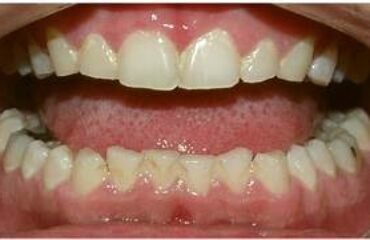 Importance of Oral Health and Its Link to General Health.Oral health has long been associated with a dazzling smile and fresh breath. Yet, its importance extends far beyond aesthetics and comfort. A well-maintained oral cavity serves as a gateway to good general health, with emerging evidence highlighting intricate connections between oral health and systemic diseases. This multidirectional relationship underscores the imperative of prioritizing oral hygiene for the sake of holistic well-being. Beyond its aesthetic benefits, maintaining good oral hygiene and addressing dental issues is essential for a multitude of reasons, ranging from effective digestion to clear communication. Furthermore, an increasing body of evidence reveals intricate links between oral health and various systemic diseases, highlighting the intricate interplay between our oral cavity and the rest of the body.The Importance of Oral Health:At its core, oral health encompasses the care and maintenance of the structures within the mouth, including teeth, gums, tongue, and the surrounding tissues. It involves a combination of practices such as regular brushing, flossing, using mouthwash, and seeking routine dental check-ups. These practices collectively contribute to oral hygiene, which is integral not only for a confident smile but also for several other aspects of health and well-being.
Importance of Oral Health and Its Link to General Health.Oral health has long been associated with a dazzling smile and fresh breath. Yet, its importance extends far beyond aesthetics and comfort. A well-maintained oral cavity serves as a gateway to good general health, with emerging evidence highlighting intricate connections between oral health and systemic diseases. This multidirectional relationship underscores the imperative of prioritizing oral hygiene for the sake of holistic well-being. Beyond its aesthetic benefits, maintaining good oral hygiene and addressing dental issues is essential for a multitude of reasons, ranging from effective digestion to clear communication. Furthermore, an increasing body of evidence reveals intricate links between oral health and various systemic diseases, highlighting the intricate interplay between our oral cavity and the rest of the body.The Importance of Oral Health:At its core, oral health encompasses the care and maintenance of the structures within the mouth, including teeth, gums, tongue, and the surrounding tissues. It involves a combination of practices such as regular brushing, flossing, using mouthwash, and seeking routine dental check-ups. These practices collectively contribute to oral hygiene, which is integral not only for a confident smile but also for several other aspects of health and well-being.- Chewing and Digestion: Teeth play a pivotal role in the initial stages of digestion. Proper chewing breaks down food into smaller particles, making it easier for the digestive system to process and absorb nutrients. Poor oral health, including missing or decayed teeth, can hinder effective chewing, potentially leading to digestive issues.
- Speech and Communication: The mouth is central to speech and communication. Clear pronunciation and enunciation rely on the proper functioning of the tongue, lips, and teeth. Dental problems that affect these structures can impede speech, potentially impacting interpersonal interactions and self-confidence.
- Psychological and Social Well-being: A healthy smile is often associated with positive self-esteem and social interactions. Conversely, dental issues can lead to embarrassment, anxiety, and social isolation, underlining the psychological importance of maintaining good oral health.
- Prevention of Dental Diseases: Routine oral hygiene practices are essential for preventing dental diseases such as cavities (dental caries) and gum disease (periodontal disease). These conditions, if left untreated, can result in pain, discomfort, and even tooth loss.
- Cardiovascular Health: The Atherosclerotic Connection: The correlation between oral health, particularly gum disease or periodontitis, and cardiovascular diseases has garnered significant attention. Studies have unveiled a potential association between chronic inflammation in the gums and the development of atherosclerosis—the buildup of plaque in arteries. Inflammation and bacteria associated with gum disease can potentially contribute to the arterial inflammation that underlies heart disease and stroke.
- Diabetes: A Bidirectional Dialogue: The interplay between diabetes and oral health manifests as a bidirectional dialogue. Individuals with diabetes are more susceptible to gum disease due to impaired immune response and altered wound healing. On the flip side, untreated gum disease can complicate diabetes management, as oral infections can disrupt blood sugar control.
- Respiratory Health: Aspirating the Consequences: Poor oral health can cast a shadow on respiratory health. Oral bacteria, particularly those residing in infected gums, can be aspirated into the lungs, potentially contributing to respiratory infections such as pneumonia. This becomes particularly relevant in vulnerable populations with compromised immune systems.
- Pregnancy and Periodontal Ponderings: The link between oral health and pregnancy outcomes underscores the systemic implications of oral well-being. Pregnant women with poor oral health, especially gum disease, are at an elevated risk of preterm birth and low birth weight. The inflammatory response triggered by gum disease can potentially contribute to systemic inflammation, affecting maternal and foetal health.
- Autoimmunity and Arthritis: Unravelling the Connection: Emerging research points towards a connection between gum disease and autoimmune conditions such as rheumatoid arthritis. Chronic inflammation in the gums might exacerbate joint inflammation in individuals with autoimmune disorders, further emphasizing the intricate links between oral health and systemic health.
- Cognition and Alzheimer’s Association: Although the connection is still under investigation, evidence suggests a potential link between poor oral health, specifically gum disease, and an increased risk of cognitive decline and Alzheimer’s disease. The inflammatory and infectious burden imposed by oral bacteria could potentially contribute to neurodegenerative processes.
- Regular Dental Visits: Routine dental check-ups are crucial for detecting and addressing oral health issues early, before they escalate into more severe problems.
- Effective Oral Hygiene: Daily brushing, flossing, and mouthwash use help maintain oral health by removing food particles, bacteria, and plaque.
- Healthy Diet: Consuming a balanced diet rich in vitamins and minerals supports oral health. Avoiding excessive sugar and acidic foods can help prevent cavities and enamel erosion.
- Moderate Alcohol and Tobacco Use: Limiting alcohol consumption and avoiding tobacco products can significantly contribute to oral health preservation.
- Hydration: Drinking water helps flush away debris and maintain saliva production, which plays a role in preventing tooth decay and gum disease.
- Stress Management: Chronic stress can affect oral health. Engaging in stress-reduction techniques can have positive implications for both oral and overall health.




